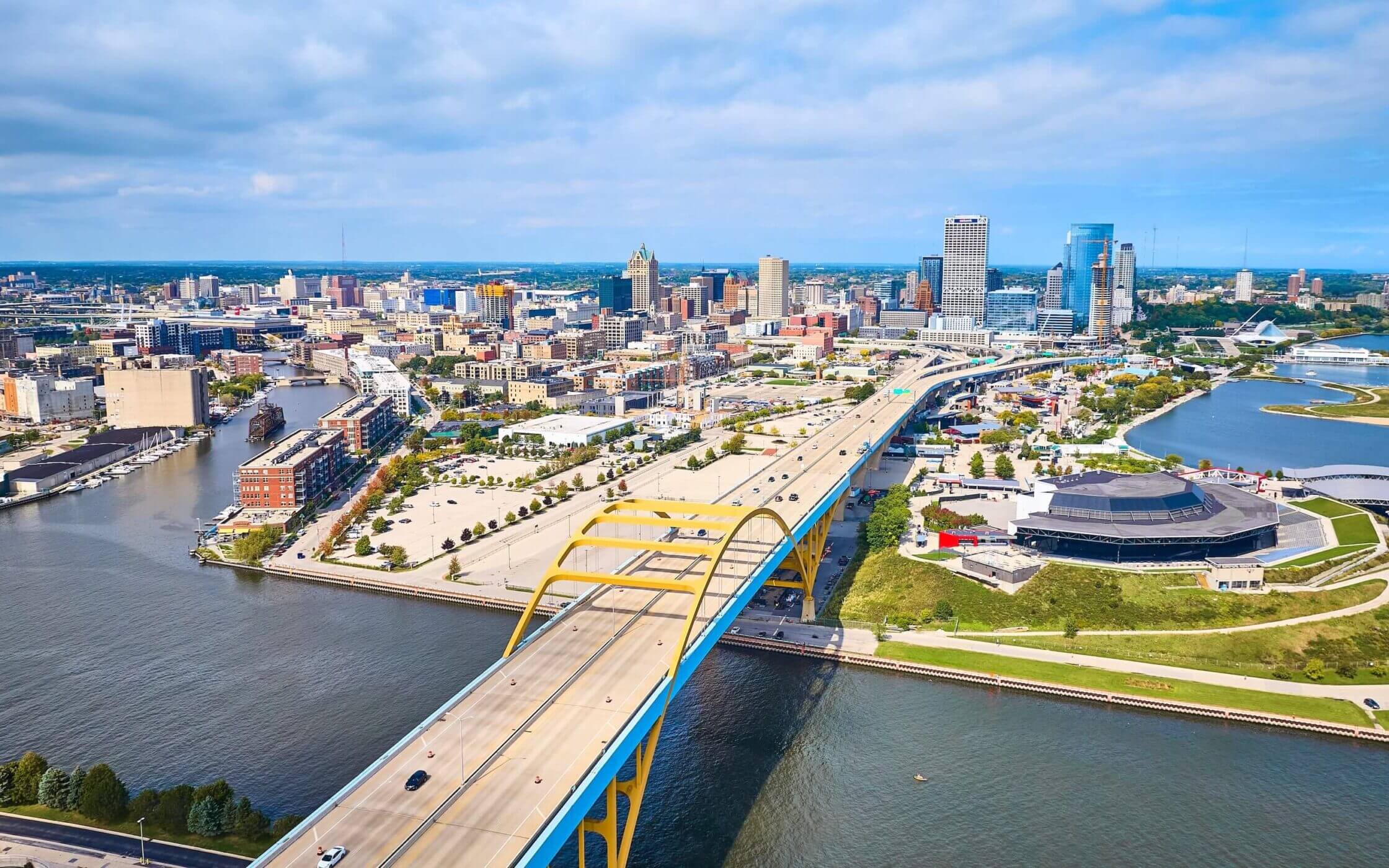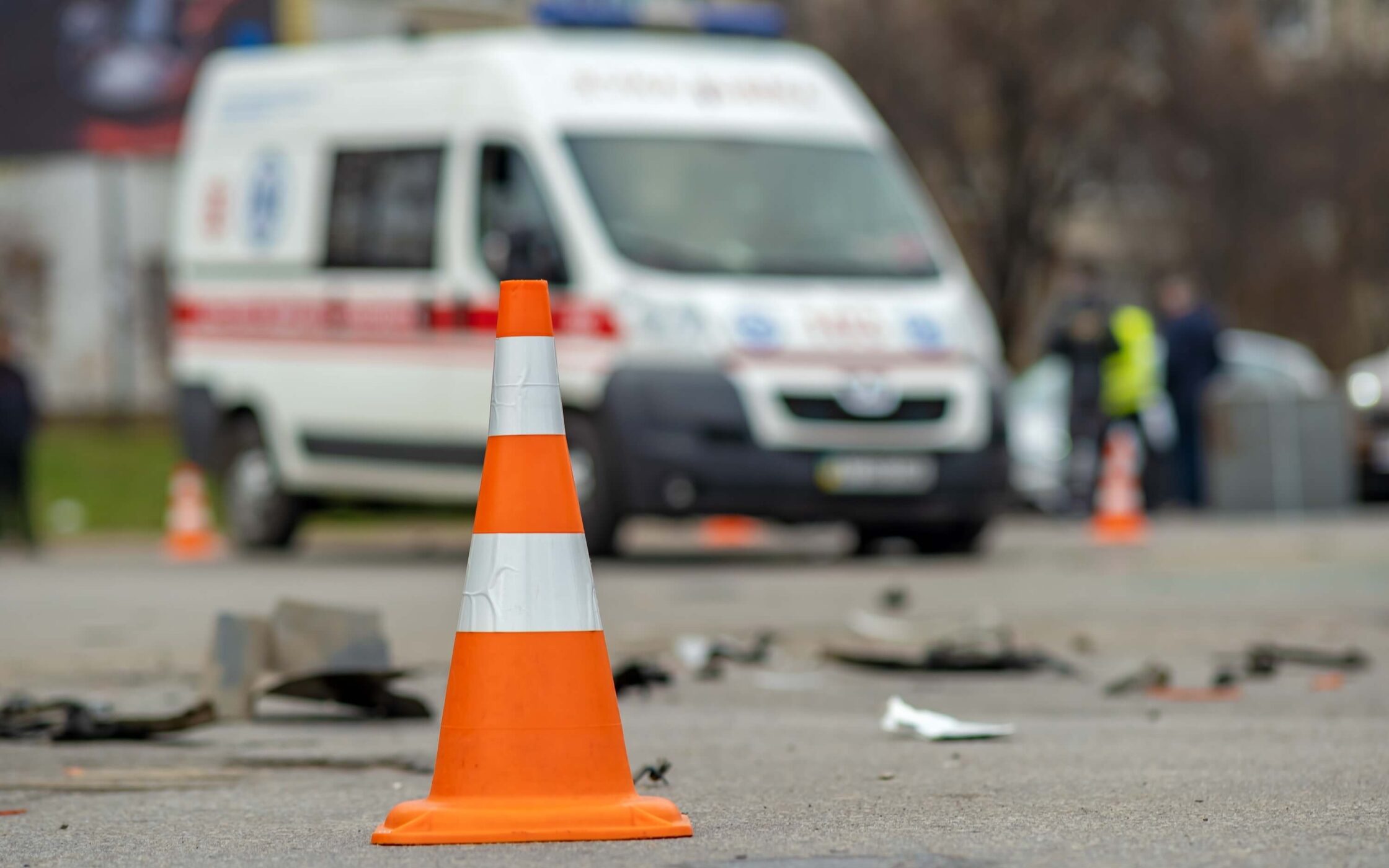Immediately after you have been injured in an accident, it’s natural to be confused, in pain, and maybe a little angry. However, if you (and other passengers in your car) have sustained serious injuries, you must regain clarity of mind to make sure you take the required steps for a successful insurance claim.
In this Milwaukee car accident guide, our personal injury attorneys at Gingras, Thomsen & Wachs will walk you through all the vital Milwaukee auto accident steps you need to take in the first few days after the crash to make your claim process as smooth as possible, so you can receive the compensation you’re owed.

Call 911
Your first step after a Milwaukee car accident should be to call 911. This ensures that first responders and the police can quickly reach the crash site, provide emergency medical aid, and create an accident report. The report may later serve as a critical piece of evidence in your personal injury claim against the negligent driver who caused your injuries.
Seek Prompt Medical Attention
You should see a doctor after your car accident, even if you’re feeling fine. Some internal injuries, such as organ damage or concussions, may not reveal visible symptoms immediately.
Proper and timely medical care will protect your well-being and also serve as key evidence of your injuries later on during your claim process. If you delay medical treatment, the insurance company may claim that your neglect worsened the injuries and that the defendant is not responsible for it.
Preserve the Physical Evidence
Physical evidence is key in establishing who was at fault for the accident. This includes a dent in your car demonstrating where it was hit, damage in the rear showing how hard the collision was, and your bloodied or torn clothing to provide undeniable evidence of your physical injuries.
Use your smartphone (or ask someone nearby) to take photos or record a video of:
- Close-up and wide shots of your and the other party’s vehicles
- Position and location of the vehicles (before they’re moved or towed away)
- License plates
- Broken glass, skid marks, and other debris on the road
- Traffic signs, lights, intersections, or any obstructions (e.g., potholes, snow) in the vicinity
- A head-to-toe shot of your body (for any bleeding, swelling, bruises, cuts, airbag burns)
- Broken windshield, deployed airbags, and other interior damage
If your car has a dash cam, download and save the footage immediately. If possible, check for traffic cameras or business surveillance cameras near the accident scene and retain that footage as well, preferably within 24-72 hours.
If you don’t photograph or preserve this type of evidence in the first few days after your crash, it may get destroyed, lost, or modified. It’s difficult for an insurance company to contradict or deny what happened when it’s displayed in a photograph.
Talk to Witnesses
If there were people present at the time of your accident, whether they were strangers or people you know, ask them for a statement and write it down. If they’re willing, record a video statement with your phone. Ask them to describe what they saw and precisely where they were when they saw it.
This is one of the most important post-accident actions, as witnesses go a long way in confirming your side of the story and thus, strengthening your claim. Note their names, home addresses, mobile phone numbers, email addresses, and recollections of the event as soon after the crash as possible.
Write Everything Down
As soon as you reach home or your head is clear enough after the accident, write down:
- How the accident occurred (where you were going, what you were doing, if there were any passengers in your vehicle, the weather, the time, etc.)
- All the physical impacts (shocks, whiplash, blows, twists) your body felt immediately before, during, and after
Then, in the following days, make daily notes of any discomfort, pain, loss of sleep, anxiety, or other problems caused by your injuries that may not be as visible.
Also, document anything you have lost due to your injuries and the accident—work hours, job opportunities, vacation, social or family gatherings, etc.—that would have benefited you but you were unable to participate in.
If you had any conversations about the accident or your claim with any witnesses, medical personnel, claims adjuster, or other representatives of the insurance company, document that as well.
Report the Accident to the Wisconsin Department of Transportation (WisDOT)
Under Wisconsin Statutes 346.70(1), you must report a crash you caused or were injured in to the local law enforcement and the DMV if:
- It resulted in a car accident injury or death to any person
- It caused $1,000 or more in personal property damage to any vehicle or other property
- It caused $200 or more in damage to government property (traffic sign, guardrail, light pole)
If someone from the Milwaukee Police Department shows up at the accident scene, they will automatically file a crash report on your behalf. However, if they do not respond, you need to file a Driver Report of Accident (Form MV4002) with the WisDOT within 10 days of the crash.
Please note, if you’re filing the report and it asks for a statement regarding how the crash occurred, only give a very brief statement of the facts. It is important to refrain from providing any opinions about fault. The insurance company will likely access this report during the claims process, and if you have acknowledged any fault, it may reduce (if not eliminate) your compensation.
Notify Your Own Insurance Company
You should notify your own insurer about the basic facts of the accident within the first 72 hours. Every auto policy in Wisconsin includes a “prompt notice” clause under which you must notify the company within a reasonable time frame (usually 24 to 72 hours).
Although the other (at-fault) driver is legally liable for your damages, their insurance company will not pay for your medical bills, vehicle repair, and lost wages right away. It will take them several weeks or months to investigate and assign fault, and even then, they may delay or dispute your claim.
Informing your own insurance will help you cover these expenses, depending on what coverages you carry (e.g., collision coverage, uninsured/underinsured motorist coverage, and MedPay). If you fail to provide a timely notice of the accident, you could lose access to important coverage that might have helped you.
Hire a Milwaukee Car Accident Attorney to Pursue Compensation
If you or your loved one sustained severe injuries in a car accident in Milwaukee, the sooner you file a claim, the sooner you might be able to settle it and recover fair compensation. Working with our Milwaukee injury law representation can help ensure the insurance company does not undermine your case and that all legal deadlines are met.
Keep in mind that if the at-fault driver’s insurance company refuses to settle, denies their fault, or offers an unfairly low compensation, you only have three years (from the date of the accident) to file a personal injury lawsuit against them. If your accident was caused by an employee of the city, county, state, or federal government, you only get 120 days to file a Notice of Claim.
If you have been injured in a car accident in Milwaukee, contact Gingras, Thomsen & Wachs LLP. Our skilled attorneys are here to help you hold the negligent party accountable and pursue the maximum possible compensation. Call 855-954-1186 to schedule a free consultation today.





